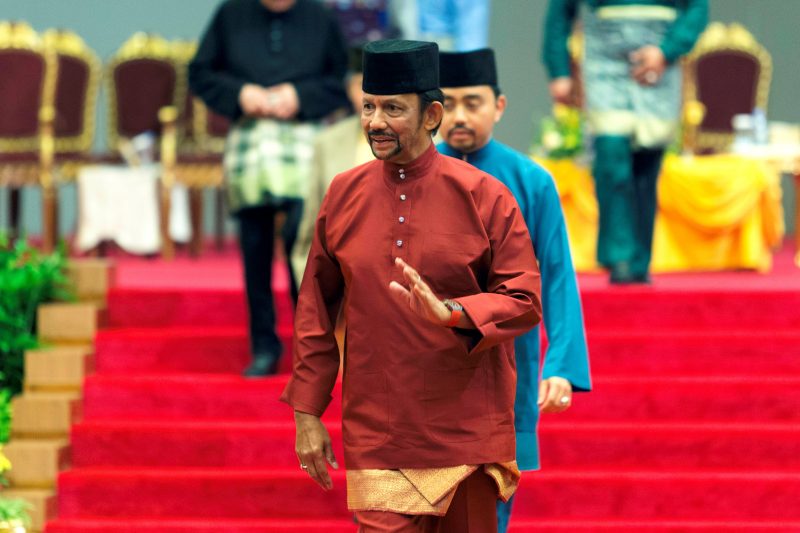Britain calls Brunei’s anti-gay law ‘backward step’
A new tough penal code in the tiny country on tropical Borneo island — ruled by the all-powerful Sultan Hassanal Bolkiah — came fully into force after several years of delay (-)
London (AFP) – The British government on Thursday said Brunei’s introduction of harsh new sharia laws, including death by stoning for adultery and gay sex, was “a backward step” for the southeast Asian country.
“The imposition of a sharia penal code in this way is a backward step as far as Brunei is concerned,” junior foreign office minister Mark Field told parliament.
“If implemented we believe these extreme punishments would contravene Brunei’s international commitments to respect human rights and individual freedoms.”
The tough penal code in the tiny country on tropical Borneo island — ruled by the all-powerful Sultan Hassanal Bolkiah — came fully into force on Wednesday after several years of delay.
It has sparked a storm of global criticism from politicians, celebrities and rights groups, with actor George Clooney and pop star Elton John calling for Brunei-owned hotels to be boycotted.
The newly-enforced sharia laws — the first at the national level in the region and more commonly found in Middle Eastern countries such as Saudi Arabia — include the amputation of hands and feet for thieves.
Rape and robbery are also punishable by death under the code and many of the new laws, such as capital punishment for insulting the Prophet Mohammed, apply to non-Muslims as well as Muslims.
However, rulers in the country — a former British protectorate which still houses a UK military garrison — have been “surprised” by the international backlash, according to Field.
He added London had updated its travel advice on the new laws and was “negotiating a range of safeguards” for British nationals there, including serving military personnel and their families.
“We have the necessary protections in place with the government of Brunei,” he told MPs who raised concerns about British soldiers’ exposure to the penal code.
Field faced calls from some lawmakers for the Commonwealth, a bloc of former British colonies, to consider expelling Brunei over the code.
But the junior minister pushed back against the suggestion.
“Rather than making threats… a more positive way is to try to hold them close, recognise that there are very some strong connections there,” he said.
Field noted of the 53 Commonwealth members, 35 criminalise consensual same-sex relations while 30 still have the death penalty on their statute books.
“(That is) primarily as a result of colonial-era legislation,” he added.
Disclaimer: Validity of the above story is for 7 Days from original date of publishing. Source: AFP.


